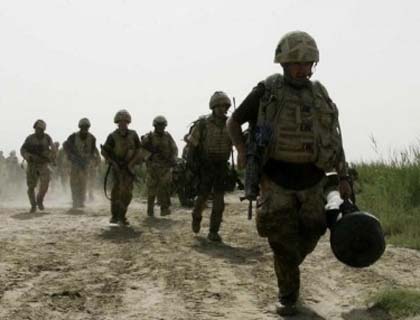WASHINGTON - The issue of the U.S. handover of security responsibilities to Afghan forces has become highly politicized, given President Hamid Karzai's call for the U.S. and its allies to take all troops out of remote areas and Afghan villages in the wake of last weekend's massacre of 16 Afghan civilians, said CBS News' chief foreign affairs correspondent Lara Logan.
On "CBS This Morning" Logan said there is no indication that demand to speed up a timetable of the U.S. handover will be carried out.
But, she said, the demand does play to consistent criticism made by Karzai about an "increasingly aggressive strategy" in the villages by the U.S., "because he feels that that is replacing what really should be an effective strategy regarding Pakistan . . . and so far there's been no change in the U.S. policy towards Pakistan.
"It doesn't appear that the U.S. has heeded his call to this point, and there's no indication that the U.S. is going to do anything dramatically differently now," Logan said.
"No indication Pakistan will do anything about its borders, either," said Charlie Rose.
"No, nor its sanctuaries or its aid for the militants, etc. The list is endless."
Logan also said the strategy behind the U.S. mission in Afghanistan - to foster trust among civilians for the government in Kabul - has been undermined. "That's what the U.S. has asked American soldiers to do on the ground," she told Charlie Rose.
"At the same time, it's very, very significant to note that U.S. diplomats - for example the former ambassador to Afghanistan, Ambassador [Karl] Eikenberry - were responsible for undermining the credibility of the Afghan government both in the U.S. and abroad by leaking cables, saying that they didn't trust them, 'Karzai is not a reliable strategic partner,' etc, etc."
"So what you are left with is U.S. soldiers with an impossible mission, because they're there to convince people that the Afghan government can be trusted and their own government is saying that they can't."
There is also a question, Logan said, as to whether a counterinsurgency strategy should be executed, because the Taliban do not see themselves as insurgent forces but as a ruling body deposed by the U.S. invasion of 2001. "They see themselves as a government trying to restore their rightful grasp and hold on power," she said.
"The whole picture in Afghanistan is very distorted, and only becomes more distorted when something like [the shooting of civilians] happens," she said. (CBS News)

